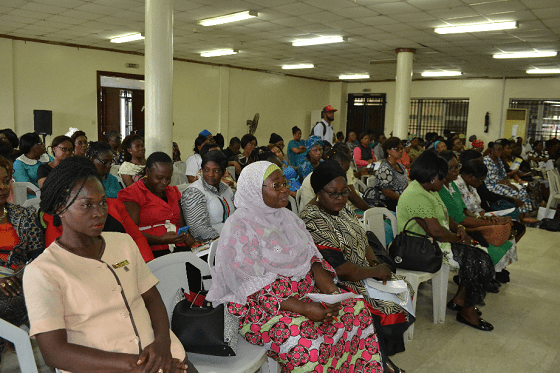– As Healthy Living Communications holds Nurse Leaders Forum
Nigeria’s healthcare delivery system will continue to underperform until there is a concrete and sustainable healthcare policy in the country, leading healthcare practitioners have said.
The practitioners who recently converged at an event tagged Healthcare Interactive Forum for Nurse Leaders, organised by Healthy Living Communications, unanimously agreed that loopholes in the nation’s health system must be bridged before progress can be made in healthcare delivery.

The nation’s healthcare policy, they argued, must help tackle challenges such as infant morbidity and maternal mortality, poor immunisation coverage for children, healthcare financing and the emergence of many substandard hospitals.
Speaking on the topic, “Current challenges in the health sector: The role of nurse leaders”, the Director of Nursing, Ministry of Health, Lagos, Mrs Dorcas Shonibare, highlighted some of the challenges facing the health sector and recommended solutions to them.

Top on the list of the problems are lack of government health policy and inadequate funding to health institutions. These, she said, often lead to proliferation of substandard health facilities, which mostly cause poor diagnosis and mortality of the citizens.
The nursing director who was represented by the Head of School of Nursing, Mrs Olayinka Owolabi, said “As far as this nation is concerned, there is no policy backing up healthcare, and this is so because, it is not in the character of those on the corridors of power to have evidence-based policy”.
She stated further that having a qualitative healthcare policy starts from the bottom to the top and also from the top to the bottom.
“By ‘down up’, I mean, as end-users, we should know what obtains in the health sector. And if health practitioners don’t have data, we would not be able to categorically tell the government that this is what is happening in the sector. But if our advocacy is evidence-based, with facts and figures to policy makers, then and then can true change occur in the sector”.
She also identified corruption as one of the major challenges facing the sector, with cases of round pegs in square holes, noting that this needs to be corrected for the populace to have access to quality healthcare services.
“After sharing the budget to the different parastatals, are they judiciously distributed to the different units? Accountability at every level is required in the health sector,” she said.
Also speaking at the forum, Dr Temitayo Olowookere, medical liaison officer at GSK, flayed the government for not making allocation for vaccination in the 2017 budget, noting that this is one of the reasons Nigeria perpetually lags behind in immunisation records.
Olowokere, who has special interest in immunisation, noted that there are 30 immunisation-preventable diseases but less than 50 percent of the children born in Nigeria are vaccinated against these ailments due to some government procedures and cultural barriers.
The medical expert also pointed out that Nigeria is yet to commence the newly introduced two-dose measles vaccine for children at nine and 18 months respectively. This, he said, is due to low immunisation outcomes in Nigerian.
He added that, presently, basic vaccination has only recorded 44 percent success in the country, whereas the new measles two-dose can only be administered in nations with 80 percent immunisation outcomes.
Other factors for this poor immunisation records, he said, include low morale of healthcare workforce due to poor remuneration, as well as poor data and planning, warning that if these issues are not addressed immediately, the health of the citizens may continue to deteriorate.
The convener of the event, Chief Emmanuel Oriakhi, CEO, Healthy Living Communications, and coordinator, Nurse Leaders Forum (NLF) urged the nurse leaders never to despair about the current economic situation but rather think through on how to improve their skills.
He reminded them on the objectives of the forum, which are: to review issues affecting professional development in the nursing profession; examine issues of national importance to healthcare delivery as it relates to the nursing profession in Nigeria; and review industry professional developments as it affects nursing practice and healthcare institutions and others.
He equally announced to the participants that, starting from next year, there will be CPD accreditation for all participants from the Nursing and Midwifery Council of Nigeria.











